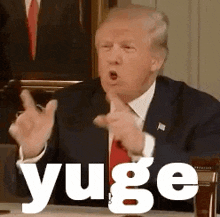- Joined
- Mar 8, 2015
- Messages
- 3,596
- Reaction score
- 9,768
I do agree that we need to do something about immigration, we need to actually vet people, zero tolerance for any crime from these people, nobody with anti LGBT or anti western views should be allowed in and we need to do so at rate that matches our housing supply. We need to stop funding them more than we do our homeless and stop making them the top priority in our healthcare system which leads to the death of god knows how many Canadians.
Raising minimum wage would dire economic consequences especially since that is what many of these new Canadians are making
He is running on the biggest increase for FHSA we have seen as well as TFSA
$10 dollar a daycare doesn't work, they never put nearly enough money towards that for it to work and if it did would result in terrible quality of care.
Look at the US, state funded lunch programs are a money pit and result in kids being fed unhealthy slop.
He shouldnt have done that one
He plans to keep it but restructure it make it effective and grant access to more Canadians, was voted against because as it is was a complete joke
Is running on a 15 % cut on income tax and a total exemption for Seniors
Yes true
Not true, but if you think we need to end immigration then we need to ban or limit abortion to keep the population intact. That or heavily incentivize having kids.
These were to make government socialized housing, I have worked on many of these projects and they are giant waste of tax payers dollars and in the end don't really turn out to be more affordable than the private sector. It is much better to cut taxes and regulations to allow homes to be built faster and cheaper so the savings can be passed on to the home owner
Yes because they were faced with two options either raise the retirement age or increase contributions. Raising the retirement age is the better option as when the original age was decided our live expectancy was substantially less than it is today.
For similar reasons as stated above, we are living longer this system needs to be restructured or it is doomed to fail
that I cannot comment on
Meaningless point, most of our enviromental regulations are crippling us for no reason other than to collect tax dollars. We are a carbon neutral country and any effort to reduce carbon emissions is a scam to fill government coffers

Climate Change - NASA Science
NASA is a global leader in studying Earth’s changing climate.climate.nasa.gov
So did Tom Mulcair and most other opposition leaders, this is a nothing burger
Yes because no matter what they say it will be used as an attack by dishonest Liberals, the fact is there hasn't been anything that could be said to be an anti-LGBT legislation from conservatives since the 80s
its better to combat poverty that it is create another bureaucratic money pit with money better spent reducing poverty rather than patching up holes
Because the Liberals wanted a carbon tax attached to it, voted for Ukraine aid in every other circumstance
Looking into this but I do not think it is true
I agree that was a bad vote
He would use it to lock up violet criminals who are murdering and victimizing Canadians, anyone against this is a fucking idiot. It would have to be invoked in the first place if Liberals hadn't spent there time giving criminals a free pass. Many of these criminals are the same immigrants you are saying we have too many of
Because it is ineffective spending, he will enact these programs efficiently instead as he has promised on current campaign
You have to be truly retarded to think this is an issue. Yeah Canadians didn't want to stand up for their rights until Russia and US told them to. Probably the most blatant propaganda on this entire list.
Not true, all WEF controlled nations enacted the exact same policies that cause inflation at the same time, so to say that because it's happening globally means he is not responsible is complete idiocy
Trudeau shouldn't have power to do so, but he did yet another example of his blatant corruption. This is easily verified.
No he didn't. I couldnt find a shred of evidence to back up that claim, which makes no sense whatsoever.
As he should, the CBC has turned into nothing but a propaganda arm of the government, they are the enemy of the people at this point. Why should we pay for our own brainwashing ?
As a Metis myself I don't like hearing that, but it's 100% true. Of course those who suffered need to be compensated but there is nothing more valuable in live than a good work ethic.
I wish we had a real candidate and party that aren't all landlords, propping up the GDP of the country with immigrants and cheap wages.
Century Initiative wins no matter who you vote for imo.




